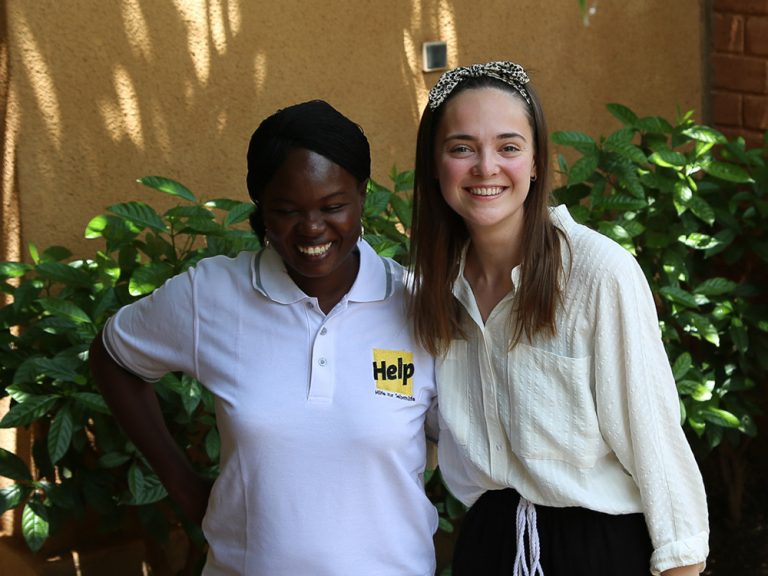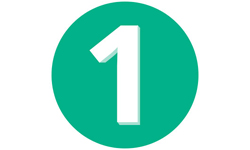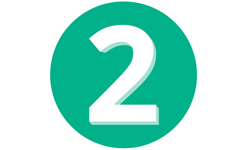1. Ethical funding partnerships policy statement
ShelterBox believes that working with corporate organisations and other funding partners to bring about change and to provide support to people, communities and countries that have lost everything is crucial. If we are to ensure we are there for those most affected by disasters and conflict then we must work closely with the wider community to maximise global impact.
We put a lot of importance in the word partnership. Partnerships are about shared goals and values. They should be mutually beneficial and demonstrate real respect between both parties. They must be open and transparent, and they must put people who have lost everything at the centre of the shared ambition.
To decline the opportunity to work with potential partners is to decline potential income and thus to reduce the number of people we support who have been displaced by disaster or conflict.
2. Our core ethical funding standards
ShelterBox has adopted two non-negotiable ethical standards:

Ethical standard 1:
“We will not accept funds from an individual or organisation whose work or activities undermine the achievement of our mission to provide emergency shelter to families who have lost their home to disaster, enabling them to rebuild their lives.”
 Ethical standard 2:
Ethical standard 2:
“We will not enter into a relationship with an individual or organisation that poses a risk to ShelterBox’s reputation.”
We apply a risk management approach to our decision-making using these standards in the process outlined below.
We are happy to help people and organisations on a journey to improve their working practices but we must have evidence that the journey has begun and see a genuine commitment from partners that aligns with our values and beliefs. We will work with partners, share information, co-create solutions, build answers together and always be honest. We understand that businesses seek competitive advantage and we will do what we can to provide benefits that support our partners’ success.
As we develop strong partnerships, we will also ensure that we retain our independence and base our decisions on what is best for people who have lost their home to conflict or disaster.
Our brand is an invaluable asset. It helps us deliver aid on the ground, gives our partners belief to work with us and gives the global public the confidence to support us. Without a strong and values based brand, we would not be able to reach those families who need us. We must always consider the impact of any partnership on our brand, and ensure that partnerships strengthen and add value to the brand and do not undermine or threaten brand by association.
3. Our values
We can’t do it alone
We are one big international team united in the belief that no family should go without shelter after disaster. We build lasting relationships and are good to each other.
We make a tangible impact
Our purpose is simple and we want to keep it that way. We work in a complex world but we keep focused on making a real difference to people’s lives.
We do the right thing
We strive to do the right thing. People are at the heart of everything we do. We have a responsibility to make the best decisions for the communities we support and listen to and learn from each other.
We plan for tomorrow
We are forward-thinking. We continually seek new ways to tackle the challenges we face, proactively researching new ideas and adapting to changing circumstances.
Because … disasters don’t wait
Disasters don’t wait. So we step up, set priorities and trust our people to get things done. We expect the unexpected and adapt quickly. We plan for tomorrow, do the right thing and work together to make a tangible impact.
4. Our beliefs
We will work with those who support our values and align with our beliefs, as outlined below.
- Families should not be illegally or immorally removed from their homes – this would include inappropriate destruction of communities or inappropriate appropriation of land.
- We believe the rights of children, women and men should be protected. As part of this commitment, we will not work with organisations that profit through pornography or prostitution.
- Everyone has the right to respectful treatment. We will not tolerate discrimination, harassment or victimisation in the workplace, and we expect our partners to uphold the same commitment, including to their own employees and supply chains. There should be clear evidence of relevant policies, and adherence to these policies.
- Many of those most impacted by conflict and disasters are those already living in poverty. People should not be forced to live in poverty, child labour should not be exploited, and commerce should not be to the detriment of local communities.
- a. Our partners must comply with all applicable human rights and employment laws in the jurisdictions in which they work and have robust means of ensuring that subcontractors in supply chains also comply. This includes complying with the provisions of the Modern Slavery Act 2015.
- b. ShelterBox will not tolerate the use of child labour. Suppliers must ensure that all goods and services are produced and delivered by organisations that subscribe to the Rights of the Child.
- Climate change is one of the greatest threats to increased levels of displacement across the globe and organisations should be working to reduce their impact on both global climate and the local environment. We will only partner with organisations who are disproportionate contributors to Climate Change if there is clear evidence to show they are changing their working practices in light of the climate crisis.
- Conflict is the other significant cause for human displacement and therefore we will not work with organisations that build or supply weapons or fund or politically support conflicts.
5. Due diligence approach
In order that we can reach a balanced decision whether to proceed with partnerships based on the factors outlined, we have introduced an Ethical Partnership Due Diligence Process to standardise and guide our organisational decision making.
ShelterBox will not accept donations from the following sectors: Arms Trade, Prostitution, Pornography and Irresponsible Lending.
Although we may refuse a donation from a particular company or industry, this does not necessarily preclude accepting donations from individuals raising money within that company, i.e. “employee fundraisers”. Such cases will be referred to the Head(s) of UK Giving and escalated to the Director of Fundraising and Communications as required for further consultation.
On occasions, ShelterBox receives funds anonymously. In these cases, reasonable steps need to be taken to ensure that the donations comply with this policy and with Charity Commission in England & Wales guidance (any donations of £25,000 or more from a single donor must be verifiable).
We also understand that circumstances and working practices change over time, so we will undertake regular reviews of existing partners.



 Ethical standard 2:
Ethical standard 2: